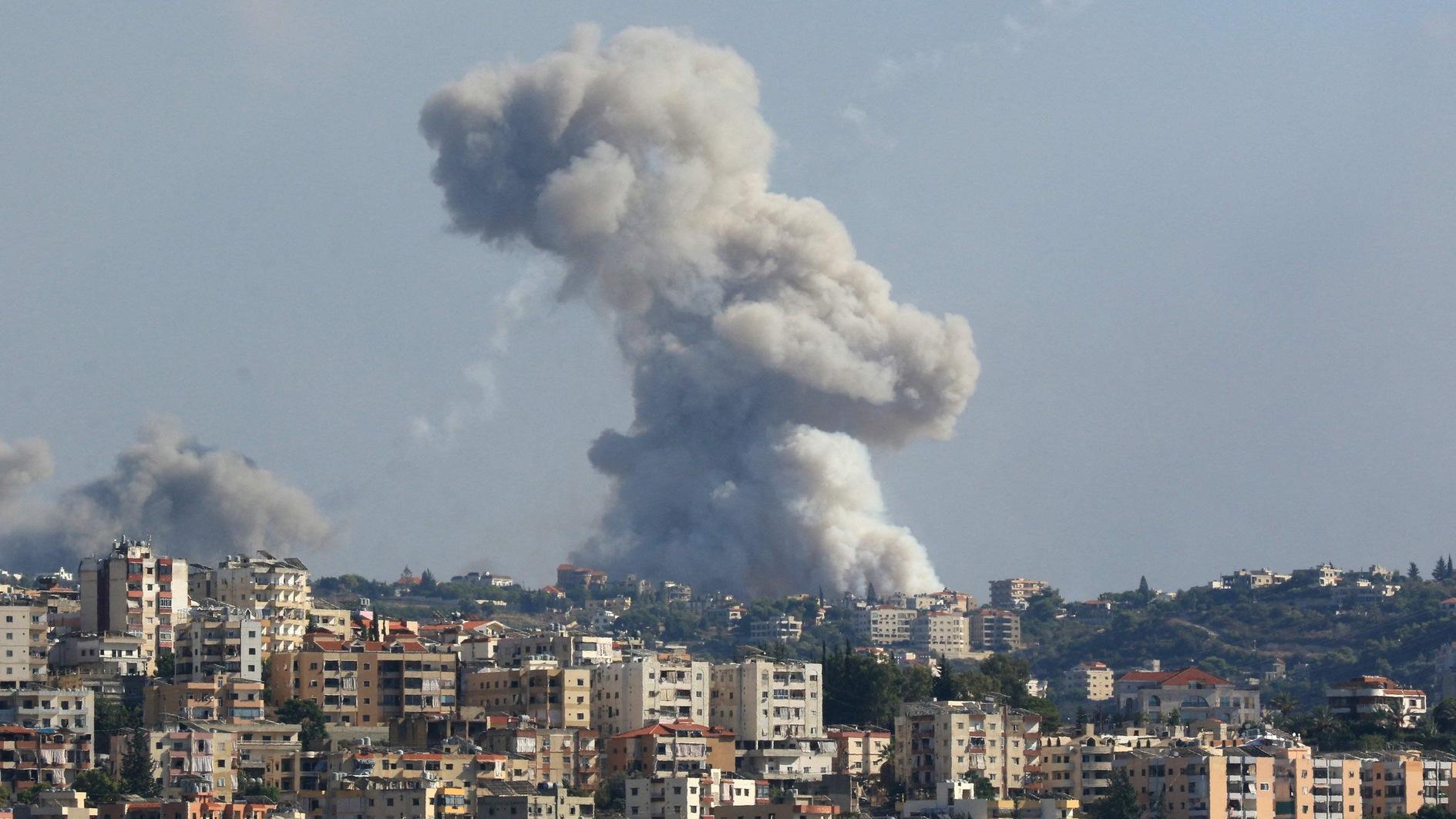
Israel announced dozens of new air strikes on Hezbollah strongholds in Lebanon Tuesday, a day after 558 people, including 50 children, were killed in the deadliest bombardment since a devastating war in 2006.
Israel's overnight strikes on southern Lebanon came after it said it had killed a "large number" of militants when it hit about 1,600 suspected Hezbollah targets around the country.
Hezbollah said Tuesday it had launched volleys of missiles at Israeli military bases, hours after 180 of its projectiles and an unmanned aerial vehicle crossed into Israeli airspace, sending people in the city of Haifa running for shelter.
The Israeli military said more than 50 projectiles were fired into northern Israel in less than 10 minutes on Tuesday morning, most of which were intercepted.
It said it had carried out more strikes during the morning targeting Hezbollah infrastructure.
In Lebanon, Monday's raids killed 558 people, including 50 children and 94 women, according to Health Minister Firass Abiad.
"The vast majority, if not all of those killed in yesterday's attacks were unarmed people in their homes," he said.
The United Nations said tens of thousands of Lebanese had fled their homes since Monday, in the face of the intensifying Israeli bombardment.
"Tens of thousands of people were forced from their homes yesterday and overnight, and the numbers continue to grow," UN refugee agency spokesman Matthew Saltmarsh said, adding that "the toll on civilians is unacceptable".
"It was a day of terror," 41-year-old housewife Thuraya Harb told AFP at a makeshift centre for displaced families in Beirut after fleeing her home in south Lebanon.
"I didn't want to leave my home, but the children were scared," the mother of four said, adding that the family fled "with nothing but the clothes on our backs".
Longtime foes Hezbollah and Israel have been locked in near-daily cross-border exchanges of fire for nearly a year, since Palestinian militant group Hamas staged an unprecedented attack on Israel on Oct. 7.
Hezbollah, which has been fighting Israel for decades, and other Iran-backed militants in the region have been drawn into the violence.
Monday's bombardment of Lebanon was by far the largest and deadliest, not just in the past year, but since the Israel-Hezbollah war in the summer of 2006.
That war killed 1,200 people in Lebanon, mostly civilians, and 160 Israelis, most of them soldiers, and devastated large swathes of Hezbollah's strongholds.
- 'Operation Northern Arrows' -
Israel has dubbed its raids on Hezbollah "Operation Northern Arrows" after announcing earlier this month it was shifting the focus of its firepower from Gaza to Lebanon.
Hezbollah backer Iran, which arms, trains and funds the group, condemned the raids, with its president, Masoud Pezeshkian, saying Tuesday that its ally "cannot stand alone" against Israel.
"Hezbollah cannot stand alone against a country that is being defended and supported and supplied by Western countries, by European countries and the United States," Pezeshkian said in an interview with CNN.
"We must not allow Lebanon to become another Gaza at the hands of Israel," he added.
Other leaders have expressed alarm over the rapid escalation, with U.N. chief Antonio Guterres's spokesman saying he was "gravely alarmed" and the EU's top diplomat Josep Borrell warning "we are almost in a full-fledged war".
The Pentagon said it was sending a small number of additional U.S. military personnel to the Middle East after thousands were deployed earlier alongside warships, fighter jets and air defence systems.
A U.S. official, speaking on condition of anonymity, said that Washington opposed an Israeli ground invasion targeting Hezbollah and had "concrete ideas" on how to de-escalate the crisis.
G7 foreign ministers said in a joint statement that "no country stands to gain" from escalating conflict, warning of "unimaginable consequences" if a regional war broke out.
China's top diplomat Wang Yi expressed support for Lebanon and condemned what he described as "indiscriminate attacks against civilians".
'Most difficult week for Hezbollah'
Israeli armed forces chief Herzi Halevi said Monday's strikes hit combat infrastructure Hezbollah had been building for two decades, while Defence Minister Yoav Gallant called Monday "a significant peak" in the operation.
"This is the most difficult week for Hezbollah since its establishment — the results speak for themselves," he said.
Prime Minister Benjamin Netanyahu said Israel was acting to change the "security balance" in the north, wile Hezbollah said it was in a "new phase" of confrontation with Israel.
War in Gaza began with Hamas's Oct. 7 attack on Israel, which resulted in the deaths of 1,205 people, mostly civilians, according to Israeli official figures that include hostages killed in captivity.
Of the 251 hostages seized by militants, 97 are still held in Gaza, including 33 the Israeli military says are dead.
Israel's retaliatory military offensive has killed at least 41,467 people in Gaza, most of them civilians, according to figures provided by the Hamas-run territory's health ministry. The U.N. has described the figures as reliable.
Since the start of the Gaza war, clashes along the Lebanon-Israel border have forced tens of thousands of people on both sides to flee their homes.
Device blasts
The violence between Israel and Hezbollah escalated dramatically last week, when coordinated communications device blasts that the militants blamed on Israel killed 39 people and wounded almost 3,000.
Then on Friday, an Israeli strike on southern Beirut, a bastion of Hezbollah, killed its elite Radwan Force commander, Ibrahim Aqil.
An Israeli military official, who cannot be identified, said the military is seeking to "degrade threats" from Hezbollah, push them back from the border and destroy infrastructure.
"This is an extremely dangerous situation, but one that for me still leaves room for diplomacy to avoid the worst," said Israeli political analyst Michael Horowitz.